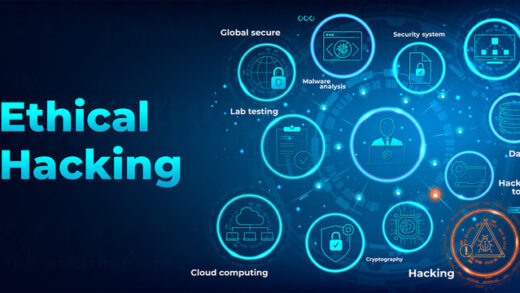Introduction
What is Data Science?
Data science is a multidisciplinary field that combines statistical analysis, machine learning, and domain expertise to extract meaningful insights from structured and unstructured data. This field has become crucial for driving decisions and strategies in various industries, making data science jobs highly sought after.
Importance of Data Science Jobs
In today’s data-driven world, data science jobs play a pivotal role in helping organizations make informed decisions. By leveraging data, businesses can optimize operations, enhance customer experiences, and drive innovation. The demand for skilled data scientists continues to grow, highlighting the importance of this profession in modern industry.
Search Data Science jobs: Naukri data science
Types of Data Science Jobs
Data Scientist
Data scientists are responsible for analyzing large datasets to uncover trends and patterns. They use statistical methods and machine learning algorithms to make predictions and provide actionable insights.
Data Analyst
Data analysts focus on interpreting data to provide insights that inform business decisions. They often work with dashboards and visualization tools to present data in a digestible format.
Machine Learning Engineer
Machine learning engineers design and implement algorithms that allow machines to learn from data. They work on developing models that can predict outcomes and automate decision-making processes.
Data Engineer
Data engineers are responsible for building and maintaining the infrastructure that allows for the collection, storage, and processing of data. They ensure that data flows smoothly from various sources to data warehouses and analytics platforms.
Statistician
Statisticians apply mathematical principles to analyze and interpret data. They often work in research institutions, government agencies, and corporations to provide statistical insights and support data-driven decision-making.
Business Intelligence Analyst
Business intelligence analysts use data to help organizations understand their operations and make strategic decisions. They develop reports, dashboards, and data visualizations to present insights clearly.

Required Skills for Data Science Jobs
Technical Skills
- Programming Languages: Proficiency in Python, R, SQL, and other programming languages commonly used in data science.
- Data Manipulation and Analysis: Skills in data cleaning, transformation, and analysis using tools like pandas, NumPy, and SQL.
- Machine Learning: Knowledge of machine learning algorithms and frameworks such as scikit-learn, TensorFlow, and PyTorch.
- Data Visualization: Ability to create visualizations using tools like Tableau, Power BI, and matplotlib.
- Statistical Analysis: Understanding of statistical methods and their application in data analysis.
Soft Skills
- Problem-Solving: Ability to approach complex problems logically and find innovative solutions.
- Communication: Skill in explaining technical concepts to non-technical stakeholders.
- Collaboration: Experience working in cross-functional teams.
- Adaptability: Ability to stay updated with the latest industry trends and technologies.
Educational Pathways
Degrees and Certifications
- Bachelor’s Degree: Commonly in computer science, statistics, mathematics, or related fields.
- Master’s Degree: Specialized programs in data science, machine learning, or artificial intelligence.
- PhD: For advanced research roles and academic positions.
- Certifications: Industry-recognized certifications from organizations like IBM, Google, and Microsoft.
Online Courses
- Coursera: Offers data science courses from top universities and companies.
- edX: Provides access to courses from institutions like Harvard and MIT.
- Udacity: Offers nanodegree programs in data science and machine learning.
- DataCamp: Focuses on interactive learning with coding exercises.
Industry Applications
Healthcare
Data science is used in healthcare for predictive analytics, personalized medicine, and improving patient outcomes. It helps in identifying disease trends and optimizing treatment plans.
Finance
In finance, data science aids in fraud detection, risk management, algorithmic trading, and customer analytics. Financial institutions leverage data to make more informed investment decisions.
Marketing
Marketing teams use data science to analyze customer behavior, segment audiences, and optimize marketing campaigns. Predictive analytics helps in identifying potential customers and improving ROI.
Technology
Tech companies utilize data science for product development, user behavior analysis, and improving operational efficiency. Data-driven decision-making is central to innovation in this industry.
Retail
Retailers use data science for inventory management, sales forecasting, and enhancing customer experiences through personalized recommendations.
Government
Governments apply data science for public policy analysis, improving public services, and ensuring efficient resource allocation. Data-driven insights support effective governance and transparency.
Job Market Trends
Demand for Data Science Professionals
The demand for data science professionals is at an all-time high, driven by the exponential growth of data and the need for data-driven decision-making across industries.
Geographic Trends
Data science job opportunities are concentrated in tech hubs like Silicon Valley, New York, London, and Bangalore. However, remote work is becoming more prevalent, expanding opportunities globally.
Salary Expectations
Data science professionals are among the highest-paid in the tech industry. Salaries vary based on experience, location, and industry, but generally, they are well above average.
How to Land a Data Science Job
Building a Portfolio
Creating a portfolio showcasing your data science projects, such as data analyses, visualizations, and machine learning models, can significantly enhance your job prospects.
Crafting a Resume
A well-crafted resume that highlights your technical skills, experience, and accomplishments is crucial. Tailor your resume to the specific job description and include quantifiable achievements.
Networking
Networking with professionals in the field through events, online forums, and social media platforms like LinkedIn can open doors to job opportunities and mentorship.
Preparing for Interviews
Preparing for technical interviews involves practicing coding problems, understanding key data science concepts, and being ready to discuss your past projects and experiences.
Challenges in Data Science Jobs
Technical Challenges
- Data Quality: Ensuring the accuracy and reliability of data.
- Scalability: Handling large datasets efficiently.
- Algorithm Selection: Choosing the right algorithms for specific tasks.
Ethical Challenges
- Bias in Data: Addressing biases in data that can lead to unfair outcomes.
- Privacy Concerns: Ensuring data privacy and compliance with regulations.
Organizational Challenges
- Data Integration: Integrating data from various sources.
- Change Management: Adapting to evolving technologies and methodologies.
Future of Data Science Jobs
Emerging Technologies
- Artificial Intelligence: Integration of AI in data science for more advanced analytics.
- Quantum Computing: Potential to revolutionize data processing and analysis.
Evolving Roles
- Data Privacy Specialist: Focus on ensuring data privacy and compliance.
- AI Ethicist: Addressing ethical concerns in AI and machine learning applications.
Expert Insights
Interviews with Data Science Professionals
Conducting interviews with experienced data scientists can provide valuable insights into the industry, career paths, and emerging trends.
Industry Reports and Statistics
Reviewing industry reports and statistics helps in understanding the current state and future projections of the data science job market.
Personal Stories and Case Studies
Success Stories
Sharing success stories of individuals who transitioned into data science roles can inspire and guide aspiring data scientists.
Career Transitions
Case studies of professionals from various backgrounds who successfully moved into data science roles highlight the diverse pathways into the field.
Conclusion
Summary of Key Points
Data science is a rapidly growing field with diverse job opportunities across industries. It requires a combination of technical and soft skills, and offers lucrative career prospects.
Call to Action for Further Education
To pursue a career in data science, consider obtaining relevant education and certifications, building a portfolio, and staying updated with industry trends. Continuous learning and adaptability are key to success in this dynamic field.
Frequently Asked Questions (FAQ)
What qualifications do I need for a data science job?
To land a data science job, you typically need at least a bachelor’s degree in a related field such as computer science, statistics, or mathematics. Advanced positions may require a master’s degree or PhD. Additionally, certifications in data science, machine learning, and related areas can boost your qualifications.
How important is programming in data science?
Programming is crucial in data science. Proficiency in languages such as Python, R, and SQL is essential for data manipulation, analysis, and building machine learning models. Programming skills enable you to automate tasks, analyze large datasets, and develop algorithms.
What are the most popular tools used in data science?
Popular tools in data science include:
- Programming Languages: Python, R, SQL
- Data Manipulation and Analysis: pandas, NumPy, SQL
- Machine Learning: scikit-learn, TensorFlow, PyTorch
- Data Visualization: Tableau, Power BI, matplotlib
- Big Data Processing: Apache Spark, Hadoop
How can I gain practical experience in data science?
Gaining practical experience can be achieved through:
- Projects: Work on personal or open-source projects.
- Internships: Participate in internships or co-op programs.
- Competitions: Join data science competitions on platforms like Kaggle.
- Online Courses: Enroll in hands-on courses and bootcamps.
- Networking: Engage with professionals and join data science communities.
What is the job outlook for data science professionals?
The job outlook for data science professionals is highly positive. The demand for data scientists continues to grow across various industries, driven by the need for data-driven decision-making. Salaries are competitive, and opportunities exist globally, especially with the rise of remote work.
More Blogs: https://scriptedkiddies.com/data-science-salary/


